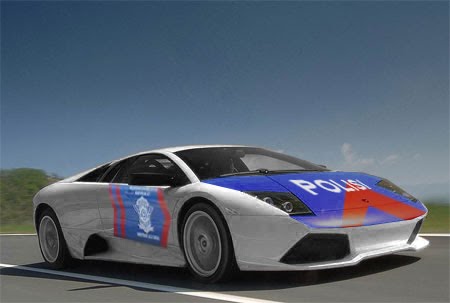*MODALS AUXILIARY*
Auxiliaries jenis ini mengandung makna khhusus yang
digunakan melalui ungkapan tertentu, sperti, ability, permission, possibility,
dll. Berbeda dengan jenis di atas, modal tidak pernah bisa berdiri sendiri dan
berfungsi menjadi ordinary verb.
A. Ability
: can, could,be able to
a. He can/is
able to climb that tree
b. She can/is
able to speak arabic
c. I can
see you tonight
·
Can/ could
dalam hal hal tertentu berbeda maksudnya dari be able to jadi tidak selalu
dapat dipertukarkan;
·
Could adalah past abliity dari can.
B. Permission:
may, might, can, could
a. You can
use my pencil.
b. May I go
home now?
c. The
teacher said that we might collect the homework tomorrow.
d. He
told us that we couldn’t meet him on Sunday.
C. Advisability:
should, ought to, had better
We should/ought to /had better study harder.
Should have dan ought to have digunakan untuk past
time
-
He should have / ought to have washed the car this
morning. (He did not wash the car this morning )
Had better tidak memiliki past form.
D. Possibility:
May, Can
1. Present/future
It can/may/might rain tomorrow.
2. Past
a. I
can’t find my purse. I could have might have left it at the office.
b. He
was not at home when I called him. He could have/ might have been at the library.
- In this
lesson we will work with this form: subject + modal + verb.
- Different things can happen during the winter.
There are different possibilities. We
can use the following modal auxiliaries to talk
about these possibilities.
|
can
|
could
|
will
|
might
|
may
|
be going to
|
Practice using these modal auxiliaries with the
following possibilities. Think of a verb to go
with a modal auxiliary.
|
cold
|
slippery
|
get sick
|
catch a cold
|
|
dangerous roads
|
snowstorm
|
difficult to see
|
icy sidewalks
|
|
Icy roads
|
cold hands
|
parking space
|
covered with snow
|
|
Freezing rain
|
Icy windshield
|
accident
|
Be late
|
- examples: It can get very cold in the
winter.
The sidewalks
might be slippery, so be careful.
- note: Do not use “to” after a modal auxiliary.
E. Necessity:
must, have to, have got to
a. I
have a class at eleven. I have got to / have to/ must go now.
b. Had
to dipakai untuk mengungkapan past necessity
c. I had
to leave the office early yesterday
F. Lack of
necessity
and prohibition : don’t have to, musn’t
a. Lack
of necessity
A wife doesn’t have to earn money.
It’s a sunny day. I dont have to bring my umbrella
You’ve got a lot of time. You
don’t have to hurry.
b. Prohibition
Moslems musn’t eat pork.
Moslems musn’t drink liquor.
Moslems
musn’t gossip
G. Inference:
must, must have
A. Present
a. You have
been workng all day. You must be tired.
b. Those
peope must be waiting for the bus.
B. Past
a. I
cant find my spetacles anywhere. I must have lost it.
b. Somebody
knocked at the door but i didn’t hear him. I must have been
asleep
H. Preference:
would rather
A. Present
a. The
children would rather walk to school thatn take a bus.
B. Past
a. The
children would rather have walk to scholl than take a bus this morning.
|
Must
|
Have
to
|
||
|
Express obligation from speakers viewpoint
|
Express
external obligation
|
||
|
He
must stay at night.
|
I
press him to do so.
|
He
has to stay the night.
|
He
can’t get back tonight.
|
|
You
must call me ‘sir’.
|
I
like it that way.
|
You
have to call me “sir”.
|
This
is the regulation address.
|
|
They
must take it away.
|
I
won’t have it any longer.
|
They
have to take it away.
|
They’ve
been told to do so.
|
Related Article:











0 komentar:
Posting Komentar